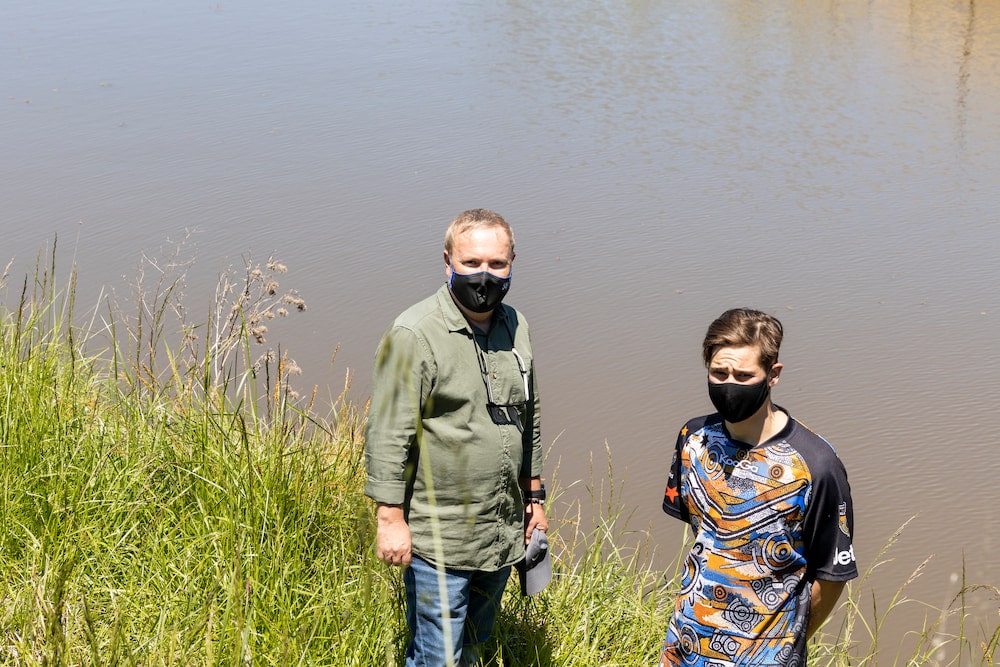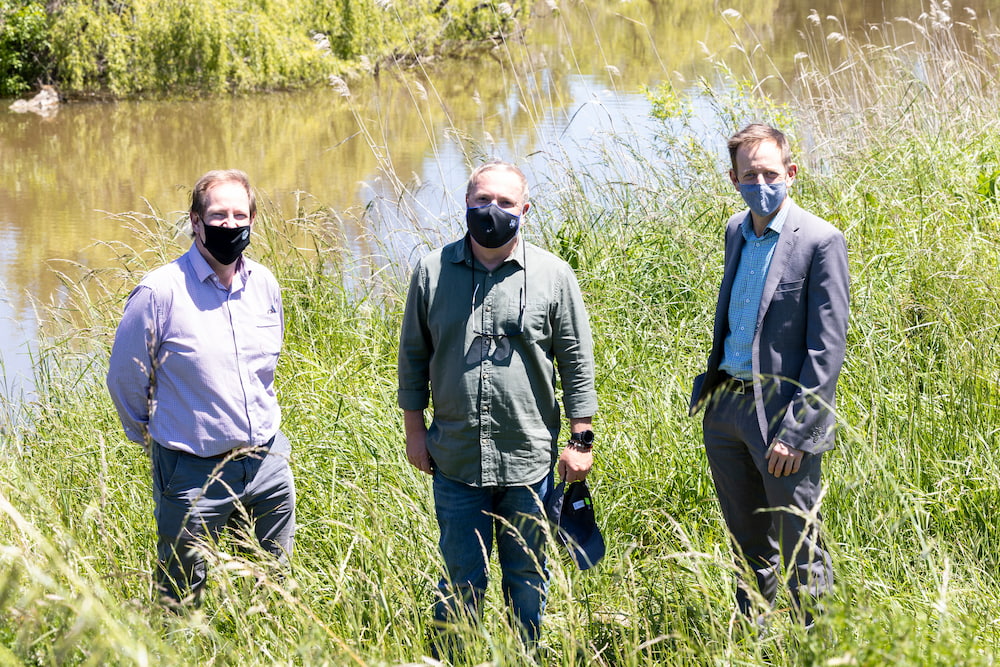For thousands of years, Aboriginal people managed the waters of the Murray-Darling River Basin. Now, the ACT has its first Ngunnawal water policy officer, Bradley Bell.
As a ranger with the ACT Government’s Environment Heritage and Water Division, Mr Bell will help to manage water health through incorporating traditional knowledge and perspectives, and work with the Ngunnawal community to co-design water planning and policy, said Shane Rattenbury, ACT Minister for Water, Energy and Emissions Reduction.
Two and a half weeks into his new job, Mr Bell said he was still finding his feet, but all had been positive so far.
“It’s a job that I’ve really wanted to be involved in,” he said. “It almost feels surreal. I still wake up in the morning, pinch myself, and think: Is this real?”
For Indigenous people, water is spiritual. “Water connects us to our ancestors, to our environment, and to our spirits, songlines, language, and stories,” Mr Bell said. “It is part of our kinship. Without those connections, we become separated.”
Mr Bell sees his role as “a voice at the table” for his people – an opportunity to talk about natural resources and cultural management. He considers his position an important step in collaboration between the Ngunnawal and the broader ACT community and government, working together to maintain, if not improve, local waterways.
Ngunnawal people, he said, work as a collective. “Our story is about sharing; it’s not about us just keeping our stories to ourselves. And we really wanted to be a part of water management and the role that it plays in everybody’s lives here in the ACT.”
Mr Bell already has experience in water policy as Ngunnawal representative for the Murray Lower Darling Rivers Indigenous Nations (MLDRIN), a confederation of First Nations from the southern Murray Darling Basin focused on caring for rivers and achieving water rights for Aboriginal people. He also helped to design the ACT Water Resource Plan, which addresses issues of changing rainfall and weather patterns, water pollution, access to water.
The major issues for the ACT, Mr Bell said, were cultural flows (water entitlements owned by Indigenous people), cultural resource management, the connectivity of waterflows, and how Ngunnawal people can be more involved in the economic development of the region.
The Murray-Darling Basin is drying up, due to drought, water-intensive farming, and dams, weirs, and locks.
Unlike Europeans, Mr Bell said, Indigenous people did not build dams, but made sure billabongs and estuaries were connected to waterways. “We’re not seeing that happen now,” Mr Bell said.
Climate change will affect the ACT’s water supply, water flow, and how much rainfall we receive, Mr Rattenbury predicted, but blending current management practices and traditional management practices would get the best possible outcome.
“We’re going to need to adapt and think about how we cope with that … hotter and drier [weather]. The rainfall we do get is going to come in shorter and harder bursts. So there’s a lot of challenges that lie ahead of us.”
In a year’s time, Mr Bell would like to see the Ngunnawal people confidently contributing to the management of water in the ACT.
“Having them being able to be a part of it is going to be a result in itself,” Mr Bell said.
“We’ve been handed down knowledge, and I want to be able to carry that knowledge and learn from that knowledge. I also want to hand that on to our younger generation.”

Indigenous people and water
“Water is core to life for Aboriginal and Torres Strait Islander peoples,” state the Australian and New Zealand Guidelines for Fresh and Water Quality; “protecting and managing water is a custodial and intergenerational responsibility.”
However, Indigenous people have often been excluded from water management policy since European arrival.
Australia has endorsed the United Nations Declaration on the Rights of Indigenous People (UNDRIP), under which Indigenous people have the right to maintain and strengthen their spiritual relationship with land, water, and other resources, and states must obtain their consent before approving any project affecting those resources, including developing, using or exploiting water.
The National Water Initiative (2004) committed to recognise Indigenous needs in relation to water access and management, consult Indigenous representatives in water planning wherever possible, and ensure water plans incorporated Indigenous social, spiritual, and customary objectives.
But the Australian Human Rights Commission’s Native Title Report (2008) argued that Australian law and policy did not adequately recognise Indigenous rights in water, while Indigenous people were historically excluded from water management policy.
Similarly, the Productivity Commission’s Inquiry Report into National Water Reform this year found that progress against the NWI’s commitments had been slow, and objectives not fully achieved. The 2017 report showed that most jurisdictions “routinely failed to identify and provide for Indigenous cultural values and objectives in water plans”.
In response, the Commonwealth government committed $40 million over four years to fund the Murray-Darling Basin Indigenous water entitlements program, helping Indigenous communities invest in water for cultural and economic activities.
Under the Murray-Darling Basin Agreement, Mr Rattenbury said, Traditional Owners must be involved in water planning and natural resource management.
“Stronger requirements through the Murray–Darling Basin Plan have led to better engagement, but Traditional Owners aspire to much greater access to, and control over, water resources,” the Productivity Commission noted.



